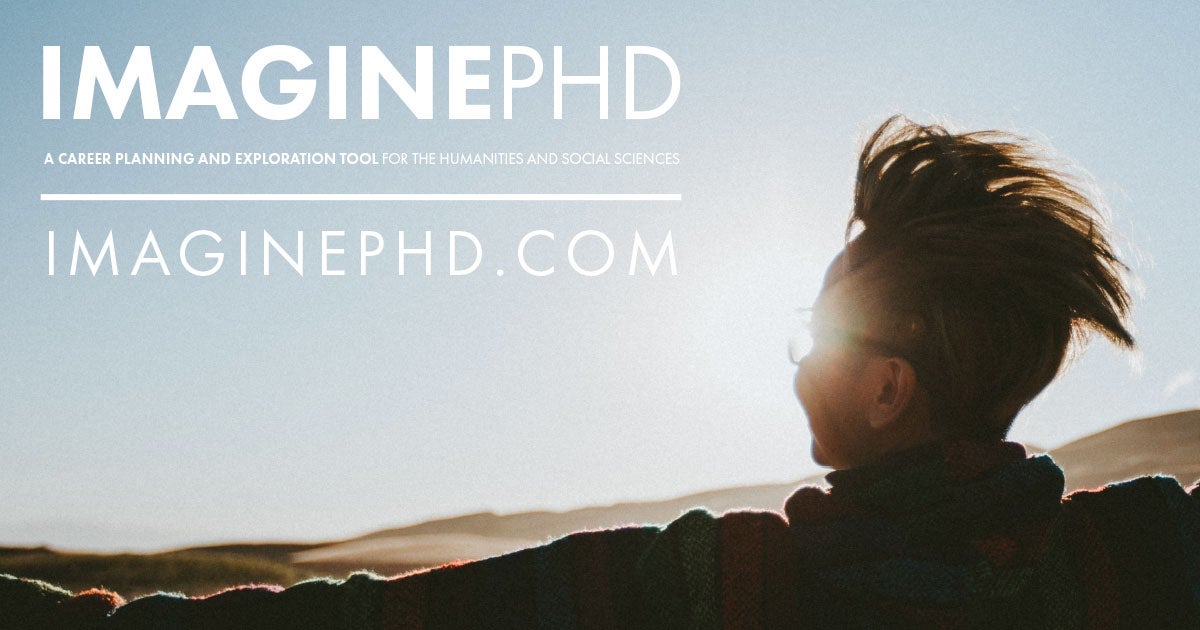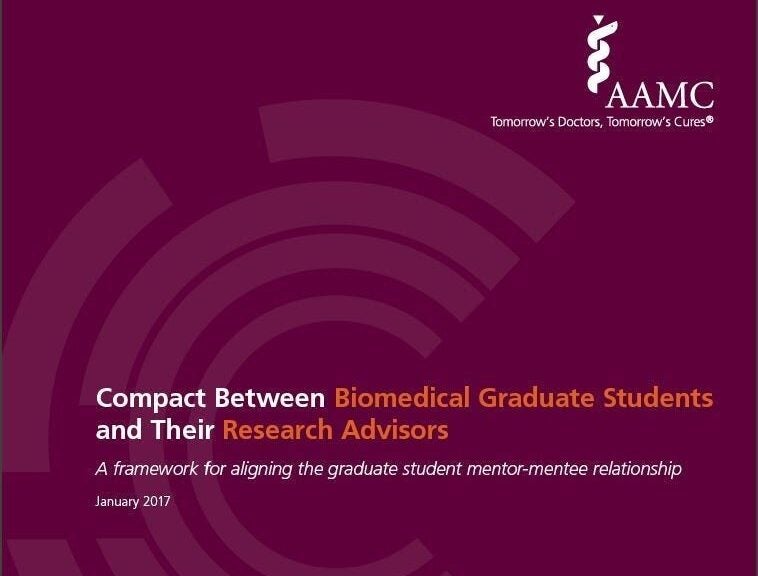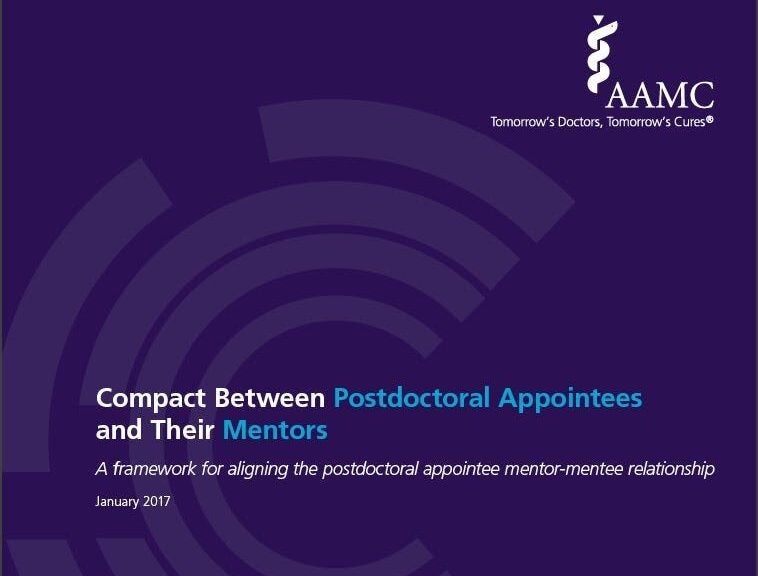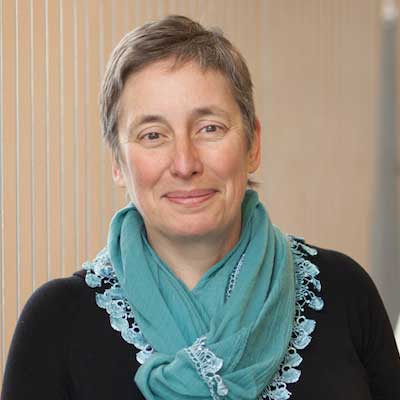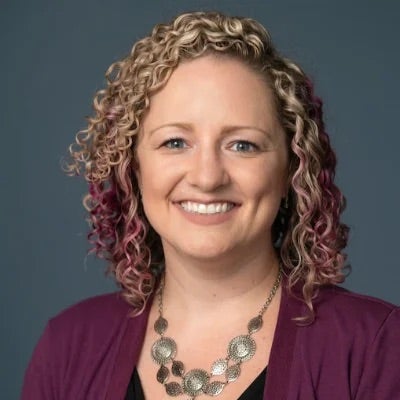Our Commitment to Mentoring Excellence
The resources listed here reflect the collective experience of the URI Graduate Mentoring Committee, our Outstanding Graduate Mentoring Award recipients, and leading national organizations dedicated to mentoring best practices. The URI Graduate School is committed to fostering an inclusive mentoring culture that recognizes every graduate student’s unique goals, backgrounds, and needs.
This comprehensive resource is designed to enhance the mentoring experience for both mentees and mentors at the University of Rhode Island Graduate School. Here, we emphasize the importance of Individual Development Plans (IDPs) as a tool for setting clear, actionable goals. Our resources guide mentees through self-assessment, goal setting, and mentor collaboration.
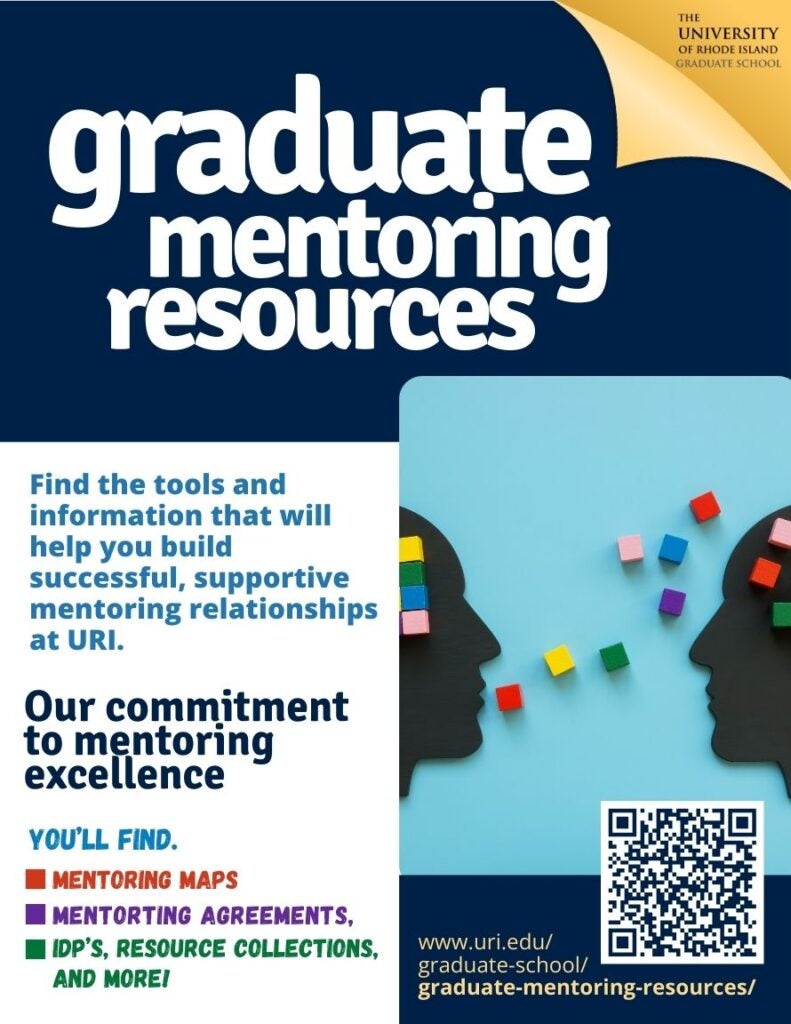
We also highlight the value of mentoring agreements to establish shared expectations and facilitate productive relationships. Our mentoring map resource helps mentees identify multiple mentors to support different aspects of their development.
Additionally, we provide frameworks and resources for navigating difficult conversations, ensuring open communication and conflict resolution in mentoring relationships. Explore our extensive range of resources tailored for mentees, mentors, and our dedicated Graduate Mentoring Committee, who are committed to fostering an enriching mentoring culture. Discover past outstanding graduate mentoring awardees and nominate exemplary mentors who have significantly contributed to student success at each spring semester.
Explore the sections below to find the tools and information that will help you build successful, supportive mentoring relationships at URI.
You’ll find here:
Individual Development Plans mentoring Agreement mentoring map difficult conversations mentoring resources graduate Mentoring committee outstanding awardeesIndividual Development Plans
An Individual Development Plan (IDP) is a framework to assist a mentee with self-assessing their proficiency at a variety of skills, honing their interests, and clarifying their values to be able to set SMART goals (Specific, Measurable, Action-oriented, Realistic, Time-bound) for a set period (i.e., annually). This provides clarity in what they are seeking in their mentoring relationship. The process to complete an IDP includes: (1) self-assessment, (2) writing goals and plans, (3) sharing the IDP and discussing with a mentor, (4) plan implementation, and (5) revising in the future as progress is made toward the goals. Below are some resources for developing and revisiting your IDP:
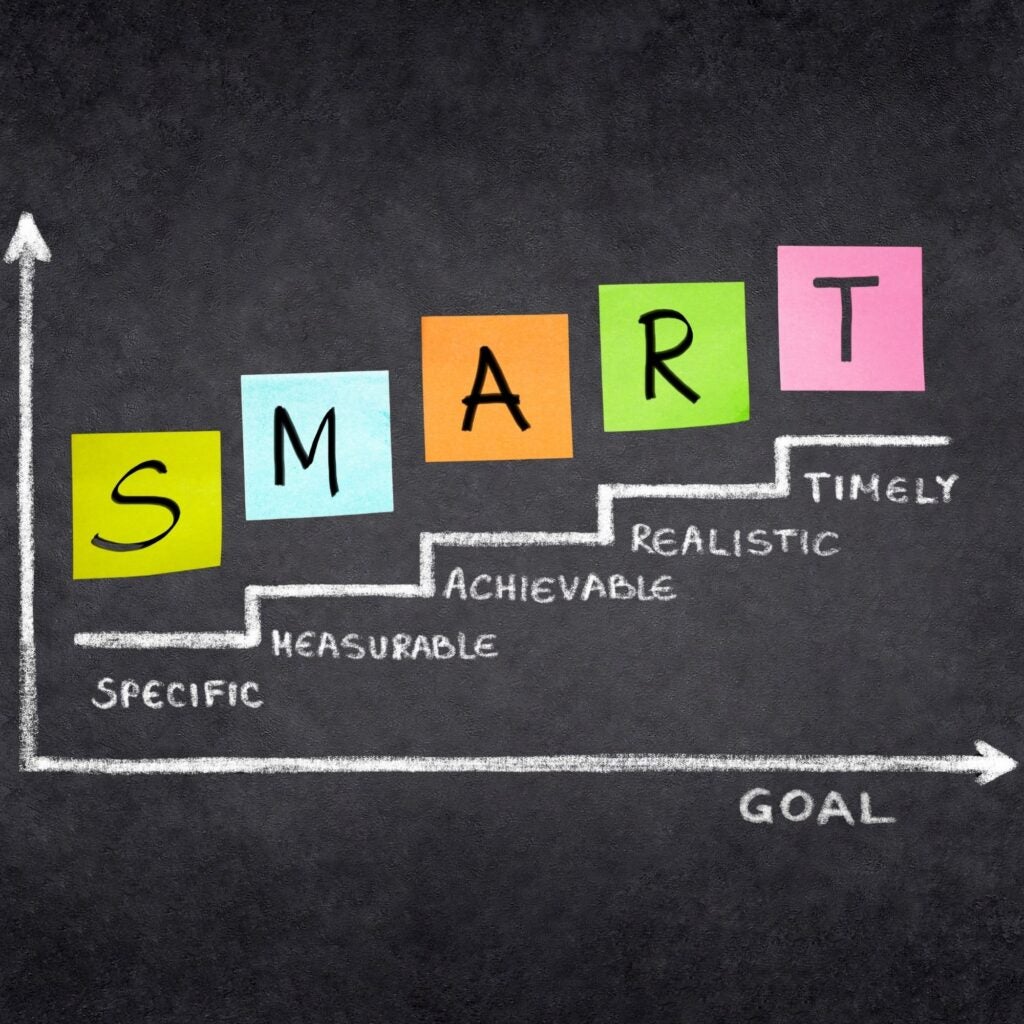
General IDPs
Disciplinary IDPs
Mentoring Agreement
A mentoring agreement establishes shared expectations for the mentoring relationship, indicating the agreed-upon focus, including the goals, topics, and skills to be addressed. The agreement is mentee-focused but ensures the mentor is suited to assist with the mentee’s desired goals. A mentoring agreement generally consists of two sections: (1) Broad expectations not specific to a given mentee, and (2) specific details of how the mentoring relationship will work with a given mentor-mentee pair.
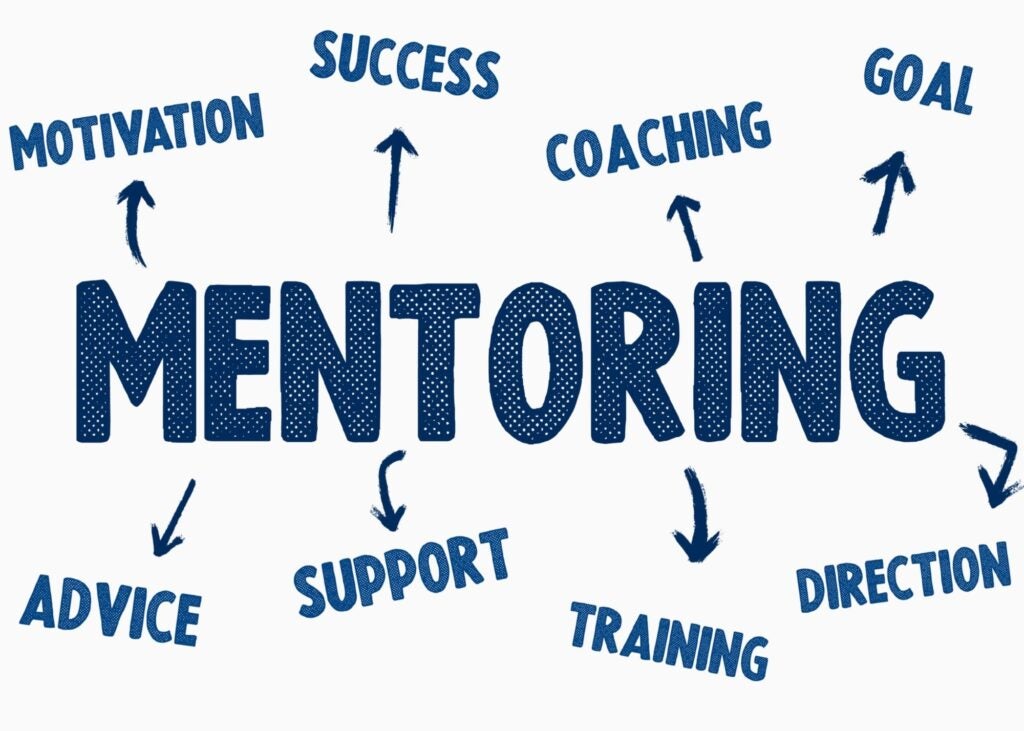
Mentoring Compact Examples
Broad expectations of a given research group but is not specific to a particular mentee.
Mentee-Specific Agreement
This template is specific to a particular mentor-mentee pair.
Mentoring Map
No single mentor can support all a mentee’s goals and needs. Having multiple mentors allows each mentor to support a specific area of development and provide a variety of perspectives. These areas of support could include substantive feedback, sponsorship, access to opportunities, accountability, professional development, emotional support, role models, intellectual community, and safe space, among others. A mentoring map helps a mentee identify different mentors who can help support various aspects of their professional development and well-being needs.
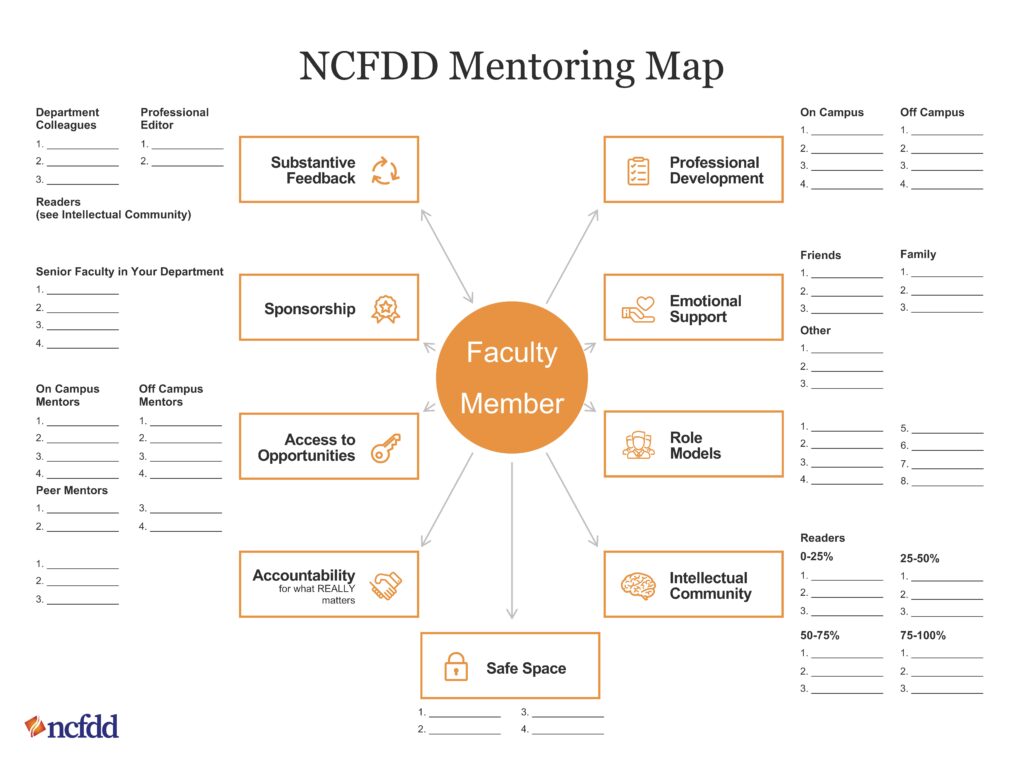
Source: NCFDD
Difficult Conversations
We all come from different backgrounds and have had varied life experiences. Thus, understanding techniques for inclusive mentoring, clarifying perspectives, communicating diverse ideas, reflecting on compromise, setting boundaries, and managing conflict are essential skills for maintaining healthy and productive mentorship relationships.
The IDP and mentoring plan go a long way toward clarifying goals and expectations, however disagreements are inevitable. While the goals of the mentoring relationship are mentee-led and clearly articulated in the IDP, there may be differences in the preferred approach to addressing and reaching the goals, how their relationship is managed, if the mentee is receiving conflicting advice, or if the mentor or mentee does not keep their responsibilities to the mentoring agreement.
Communicating difficult information is a learned skill. With some frameworks to get you started and some practice, you can address challenging topics with your mentor or mentee with confidence and care.
Further Mentoring Resources
For Mentees (students and post-docs)
- Council of Graduate Schools (CGS)
- Center for the Improvement of Mentored Experiences in Research (CIMER)
- Graduate Student Mentoring Guide
- Center for the Integration of Research, Teaching and Learning (CIRTL)
- National Center for Faculty Development and Diversity (NCFDD)
- URI Office for the Advancement of Teaching and Learning (ATL)
- Caprino, K. (2014), How to Find a Great Mentor – First, Don’t Ever Ask a Stranger
- Kearns, H., and M. Gardiner (2011), The Care and Maintenance of your Advisor
For Mentors (faculty and staff)
- RI Advance-CTR
- Council of Graduate Schools (CGS)
- The Equity-Minded Mentoring Toolkit
- National Academies, The Science of Effective Mentoring in STEMM
- How to Mentor Graduate Students
- Center for the Improvement of Mentored Experiences in Research (CIMER)
- National Center for Faculty Development and Diversity (NCFDD)
- Center for the Integration of Research, Teaching and Learning (CIRTL)
- URI Office for the Advancement of Teaching and Learning (ATL)
- Nature’s Guide for Mentors
- Tjan, A.K. (2017), What the Best Mentors Do
Graduate Mentoring Committee
The Graduate Mentoring Committee members were selected through an application process passed on their exemplary mentoring engagement both on campus and in their professional communities off campus. The committee has been working to understand the campus needs for graduate mentoring training and resources and implement a support framework to address these needs.
Outstanding Graduate Mentoring Awardees
Each year, the Graduate School solicits nominations for graduate faculty who have made a substantial impact on graduate students’ success via their outstanding mentoring. Nominations are accepted in the spring semester of each year. Below a the past recipients of the award.
Roxanne Beinart, Graduate School of Oceanography (2025)
Ping Xu, Department of Political Science (2024)
Arun Shukla, Department of Mechanical, Industrial, and Systems Engineering (2023)
Melva Trevino Pena, Department of Fisheries, Animal, and Veterinary Sciences (2022)
Ingrid Lofgren, Department of Nutrition (2021)
Angela Slitt, Department of Biomedical and Pharmaceutical Sciences (2020)
Shingo Goto, College of Business (2020)
Jose Amador, Department of Natural Resources Sciences (2019)
Rod Mather, Department of History (2019)
Evan Preisser, Department of Biological Sciences (2018)


